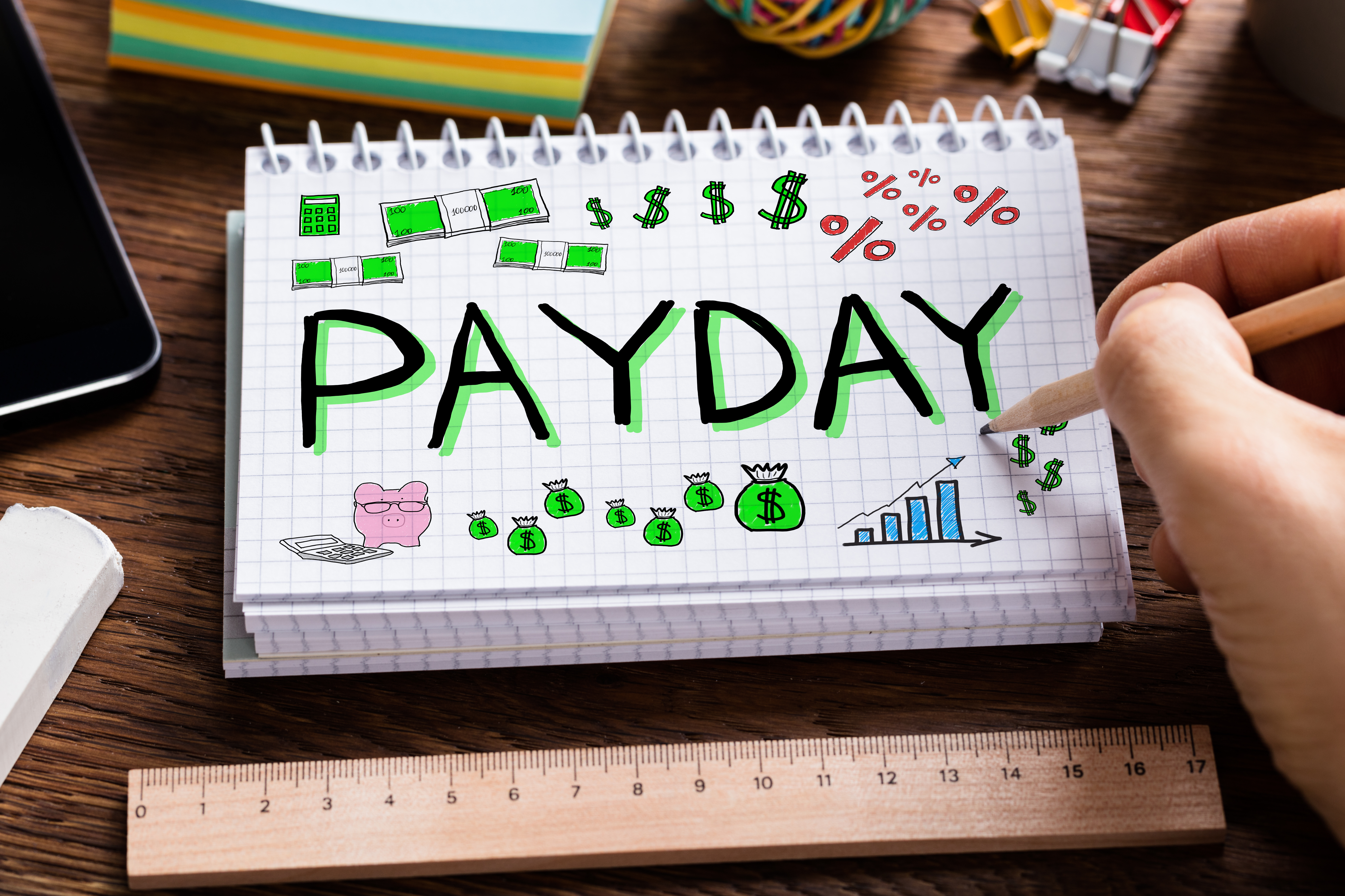1/20/2018
Michelle Graven

It’s finally payday! You pay your rent, utilities, credit card and other expenses and before you know it, you have little to no money left. Your next payday arrives. You pay rent, utilities, credit card and other expenses and once again, have little to no money left, and so the cycle continues. You feel like you will never get out of this rotation. Good news is, you’re not alone. According to a recent careerbuilder.com survey, 78% of us live paycheck to paycheck. How do we jump off this roller coaster? Take a look at your finances, and then make a change (did you read this to the tune of “Man in the Mirror?”).
Track Spending
Do you know where your money is going every month? Save your receipts for a month and then separate them into different categories like food, entertainment, utilities, etc. This will help you figure out where you are spending the most money and where you need to cut back. These findings should be the foundation of your budget. Try using a register, Marine Bank’s Money Manager or a simple spreadsheet to continue to track your monthly spending.
Develop a Plan
After you have looked at your income, expenses and debt, it is time to develop a plan. Make your budget and be sure to find a system that works for you. To help you get started, check out our blog all about creating a budget.
Save, Save, Save
We can’t say this enough. Build up your savings. This allows you to be prepared for emergencies and/or large purchases. Eliminate the temptation to spend what you should put in savings by setting up an auto transfer to your savings account or retirement fund on payday. Another option is Marine Bank’s Common Cents program. Every time you use your Marine Bank debit card, your purchase will be rounded up to the next dollar and the difference will automatically transfer from your checking account into your savings account. How easy is that?
Find a Side Hustle
Part-time jobs are everywhere, sometimes you can even work from home. Check your local newspaper or sites like Indeed to find part-time jobs. Apps like eBay and Let Go are great to use to sell unwanted items to get some extra cash. Plus, you can finally get rid of those jeans you’ve had since high school. Having a little extra income will help you pay off your debt faster and may give you more wiggle room to change some ‘wants’ into ‘haves.’
Adjust your lifestyle
A good rule of thumb is to keep your monthly housing expenses around 28% or less of your monthly gross income. Can you afford your current lifestyle? If your rent is extremely high, consider finding a roommate or downsizing. You can also save by limiting how often you eat out and instead learn how to cook. Look at local blogs to find free weekend events in your area instead of planning road trips. Don’t be afraid or embarrassed to say ‘no’ to friends or family when they ask you to do something that you can’t afford. Great friends will understand the struggle and won’t make your feel bad for dipping out.
Changing how you deal with money seems hard, but changing your attitude will help you get on track to a better financial future. Break the cycle. It’s never too late to start.